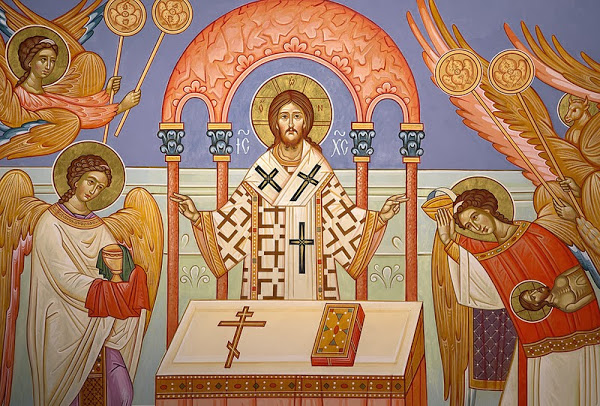The Lord's Prayer
My beloved in the Lord:
The Lord’s Prayer is prayed at every Divine Liturgy, sacrament and service in the life of the Holy Church. It should also be part of our personal discipline of prayer on a daily basis. It is important to say that the Lord’s Prayer is the prayer of the Son of God Himself given to His disciples in the Sermon on the Mount as recorded in the Gospel of Matthew. All too often we pray the Lord’s Prayer without thinking about what the words we are saying really mean. It is a summary of the entire Gospel. In the words of this prayer are contained the height, breadth and depth of the Gospel and the purpose and meaning of our lives: that we are called to be the beloved children of the one, true and living God – the Creator of the universe who loves everyone and everything.
By the words, “Our Father” the Lord teaches us to pray not merely as individuals but as members of His the Holy Church. Saint Paul writes: “because we have received adoption as God’s children, God has sent the Spirit of His Son into our hearts, crying out Abba, Father!” (Galatians 4:5-6). Through Christ, in the Holy Spirit, Orthodox Christians joyfully address the God who created the universe with stunning intimacy, as our Father. “Hallowed” is the old English word meaning “to make holy” or “to sanctify.” How do we sanctify God’s holy name? We sanctify God’s name by how we live our lives as believers, by being holy ourselves. The words, “Thy Kingdom come” should make us tremble because here we pray for the end of the world and the coming of the four horsemen of the Apocalypse (Revelation 6:1-8). We pray for the Last Judgment (Matthew 25:30-46), that final day when everyone will stand before what Saint Paul calls “the dread judgment seat of Christ” (II Corinthians 5:10) to give an account for how we have lived. In saying “Thy will be done” we recognize that we find meaning for our lives only by doing God’s Will and not our own. The purpose of life cannot be found in what I want. It can be found only in what God wants. The Church Fathers have interpreted the petition for “our daily bread” in two ways: first, that we are declaring our total dependence on God for our day-to-day existence and that whatever we have to sustain our life is a gift from God; and the second, that this is a prayer for the Bread of Life, the Eucharistic Bread that is His Body that we will receive in the Sacrament of Holy Communion (John 6:53-58). Next, we ask God to forgive us as we forgiven others “who have trespassed against us.” In the Gospels of Mark 11:25 and Matthew 6:14, Christ makes it perfectly clear that we cannot ask God for forgiveness unless we are prepared to forgive others. The petition, “Lead us not into temptation…” is made absolutely clear by Holy Scriptures that: “…God cannot be tempted by evil and He tempts no one. Rather, one is tempted by one’s own desire” (James 1:13-14). When we are tempted by our own desires, we are pulled away from God’s loving Presence, making us children of evil instead of children of the God who is love (I John 4:8). By praying the Lord’s Prayer in total faithfulness, we can join Saint Paul and declare with him: “It is no longer I who live, but Christ who lives in me” (Galatians 2:20).
Praying that the abundant blessings of Almighty God and the prayers of the Holy Theotokos be with you and your loved ones, I humbly remain,
With paternal love and blessings in the Lord,
Protopresbyter Panagiotis






